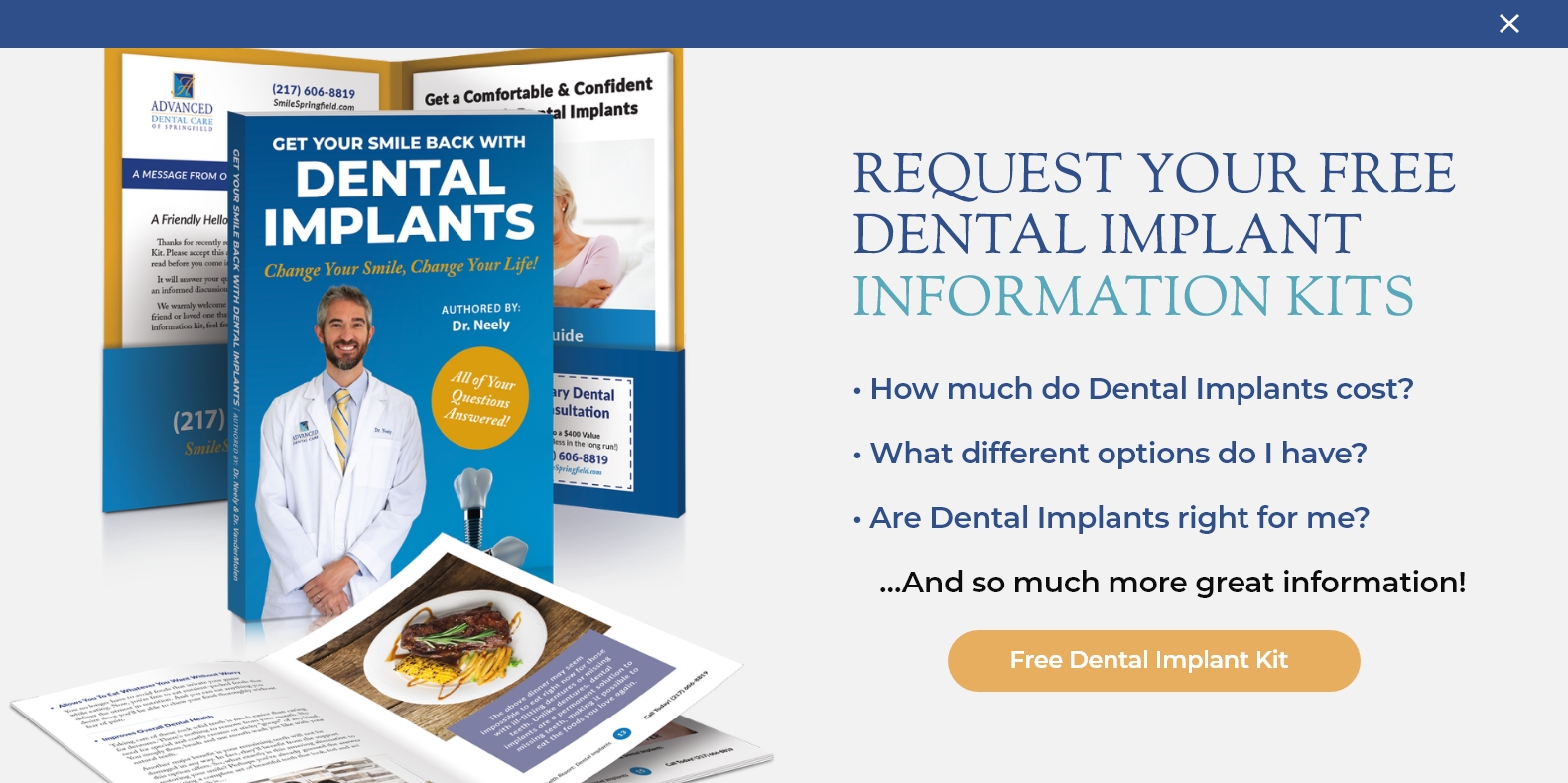Dental Implants Springfield
Tooth Replacements That Can Last Decades
When it comes to bringing back missing teeth, dental implants are simply in a class of their own. They are the only restoration that replaces both portions of a tooth above and below the gum line, providing results that are virtually indistinguishable from nature. Whether you are missing a single tooth, all of your teeth, or something in between, they can help rebuild your smile to last a lifetime. To learn more about them and what they can do for you, contact us today.
Why Choose Advanced Dental Care of Springfield For Dental Implants?
- #1 Entire Dental Implant Treatment Completed Under 1 Roof
- #2 Computer-Guided Dental Implant Surgery Technology Is Utilized
- #3 Our Entire Team Is Focused On Your Comfort
What Are Dental Implants?

Dental implants have quickly become the gold-standard in tooth replacement solutions. They are the only option that replaces both the roots and crowns of missing teeth, restoring every part of the smile and closely mimicking your healthy smile. The dental implant itself is a small titanium post that can be inserted directly into the jawbone. There, it will naturally fuse with the surrounding bone tissue to form a strong and stable foundation for the restoration placed atop it. One or more dental implants can be used to support a crown, bridge, or denture in order to replace any number of missing teeth.
The 4 Step Dental Implant Process

A dental implant is actually a man-made titanium tooth root that is placed directly into the jaw in order to support a new tooth. To get one, it needs to be placed via a minor surgery. Unlike most other practices, the team at Advanced Dental Care of Springfield can handle the entire implant procedure from start to finish, ensuring you’ll be able to reclaim your smile while working with the same doctor and team that you trust. Once the surgery is complete, you’ll be given a few months to heal before returning to our office to receive your new restorations for tooth replacement.
Treatment Planning & Preparation

Before we begin the dental implant supported tooth replacement process, we’ll carefully assess your oral and overall health, discuss past and current health conditions and medications, and capture diagnostic images to create a precise implant supported tooth replacement plan. In order to ensure you have the best chances for successful dental implant placement, we may need to provide one or more preparatory treatments, including tooth extractions, tissue grafts, and services like gum disease treatment to help patients achieve optimal oral health before starting the tooth replacement process. Once we have prepared your smile and fully planned your dental implant procedures, we can schedule the surgical placement of one or more dental implant posts.
Surgical Dental Implant Placement
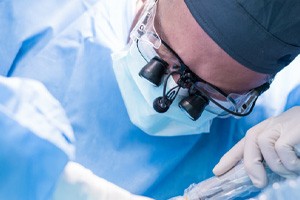
Once you’re in good oral health and all preparatory treatments have been completed, we’ll surgically place the dental implants. This process is not as invasive as you may think. We simply make a small incision in the soft tissue and place the implant post into the jawbone. Then, a protective cap is attached over the top of the dental implant to protect the surgical site. This allows the implant to fuse with the jawbone and maintains space in the soft tissue that is necessary to access the implant after it fuses with the supportive bone and soft tissue. Over the course of three to six months, the implant posts undergo a process called osseointegration. This is a long word that essentially means your implant posts integrate with the rest of your healthy dental structures, recreating your lost tooth roots.
Abutments & Restoration Design
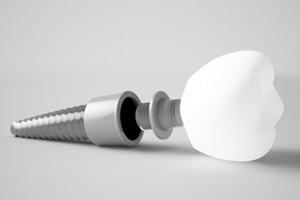
Once the dental implant posts have fused with supportive structures and the surgical site has healed, we’ll place the abutments. These are connector pieces that attach the dental implant posts to your replacement crown, bridge, or denture. After placing the abutments, we’ll capture bite impressions and design your replacement tooth or teeth. These replacement teeth may be a single tooth dental crown, a consecutive tooth bridge, a partial, or a full denture.
Placement of the Prosthetic Tooth or Teeth
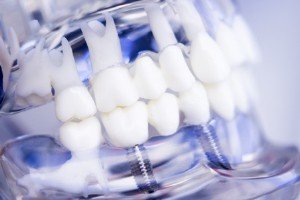
Finally, when we receive your custom crafted dental restoration from the lab, you’ll return for the final stage of treatment. This process is simple. We check the fit of your prosthetic. Then, it’s attached to the abutment posts where it will seamlessly integrate into your smile. Once in place, the implant supported dental crown, bridge, partial, or full denture will remain in place and flawlessly functional for years to come.
Benefits of Dental Implants

Are you missing one tooth or multiple consecutive teeth? Having gaps in an arch can have a drastic impact on your daily life and make it difficult to easily chew and speak clearly. They can also put you at a higher risk of developing serious oral health problems like gum disease and cavities. In addition, traditional tooth replacements usually require altering your healthy existing teeth, which can put them at risk. With dental implants, our team at Advanced Dental Care of Springfield can replace your missing teeth while preserving your oral health. Continue reading below to see some of our patient’s favorite benefits of dental implants!
Day-to-Day Benefits

There are many things that your teeth do for you every day that you may take for granted. Without them, you’ll experience a drastically decreased quality of life. Here are some of the ways dental implants can help you regain daily function:
- Speak Clearer: Missing teeth can cause speech impediments by making it harder to pronounce certain words or syllables. Dental implants can restore your ability to speak clearly.
- Eat Your Favorite Foods: With large gaps in your smile, you may find it difficult to enjoy foods you once did. With dental implants, you’ll see much of your bite force return, making it possible to continue eating your favorite meals.
- Socialize with Confidence: Large tooth gaps can be a source of embarrassment for many patients who feel they need to hide their smile. Restoring your aesthetics with dental implants will make you more engaged and energized when speaking to loved ones.
Health Benefits

You’ll probably notice the daily benefits of dental implants right away, but they also work behind the scenes to keep you healthy in many hard-to-notice ways, such as:
- Strengthening Your Jawbone: Dental implants are embedded into your jawbone, providing artificial tooth roots that stimulate the bone with every bite to prevent deterioration.
- Reducing Oral Health Problems: Lost teeth can cause their neighbors to shift over time, throwing your mouth into misalignment. This can make it more difficult to clean your smile. Dental implants stop this shift, reducing the risk of cavities and gum disease.
- Facilitating Digestion: Without a thorough chew, large chunks of food can enter your digestive tract and cause unpleasantness like indigestion and acid reflux. With dental implants, you can ensure that every bite is chewed well and keep your gut health intact.
Long-Term Benefits

Dental implants can last for decades with proper care and boast a 95 percent success rate. Since you’ll have them for a long while, it’s reasonable to look to the benefits you’ll have in the future. Here are some things to look forward to:
- A Youthful Appearance: Patients with severe tooth loss often find their jaws and faces sinking or shrinking over time. Dental implants prevent facial collapse by providing structure for the bones and muscles in your face.
- Saved Money: Dental implants prevent many oral problems you would otherwise need to pay for individually. Even one dental implant can save you money in excess dental costs over time.
- Easy Restorations: In most cases, you won’t need to replace an implant fixture once it’s healed. Instead, you can simply have the restoration on top switched out if it's damaged!
Who Dental Implants Can Help

Regardless of how many teeth you are missing, we can likely design a dental implant treatment plan to help you enjoy a full smile once again. Dental implants have no upper age limit, and patients as young as 18 can begin to consider this revolutionary treatment. Even if you are not considered a good candidate for dental implants right away, we can often help you become one with advanced procedures like a bone graft or sinus lift.
Who Is a Good Candidate for Dental Implants?

Before we begin the dental implant process, we’ll need to make sure that you’re a good candidate for the treatment. To determine this, your dentist in Springfield will thoroughly examine your oral structure and mouth to find out of you need any preparatory procedures, including a bone graft, sinus lift, or gum disease treatment. Once you’ve healed, we’ll schedule your dental implant surgery.
Missing 1 Tooth
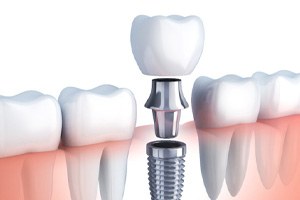
For a patient that is missing one tooth, we’ll use what is called an implant-retained crown to bring it back. For this, a custom-made, all-porcelain dental crown will be attached directly to an implant post using a metal connector called an abutment. The crown will be color-matched to the surrounding teeth, and because it will have the same basic structure as a natural tooth, it will seamlessly blend in with the rest of the smile.
Missing Multiple Teeth

For someone who is missing multiple teeth in a row, implant crowns can also be used to support a bridge. Two implant crowns are placed on either side of the gap in a person’s smile, and these are bonded to prosthetic teeth to close it. Implant-retained bridges look natural, are strong, and can be a lifetime restoration.
Missing All Teeth

Implants are extremely versatile and can also be used to support a denture to replace multiple teeth located around the mouth or even an entire arch. For this, the prosthetic teeth will be anchored directly to the jawbone using multiple implants placed within the mouth. This gives implant dentures multiple advantages over traditional removable ones:
- Stronger Hold: Because the denture is attached to the jawbone just like natural teeth, it is much less likely to slip, slide, pop, or click while in the mouth.
- More Consistent: Dental implants actually support the jaw from within, which will help stop the bone loss that causes many dentures to lose their fit in a short amount of time. With implant dentures, you can trust them to fit like the day you got them for a long time.
- Better Bite: Regular dentures only bring back 10-12% of a person’s bite force, while implant dentures bring back 70%! This means a patient will be able to enjoy a wider variety of foods with ease, leading to an overall healthier (and more satisfying) diet.
Learn More About Implant Dentures Learn More About All-On-4 Dental Implants
Understanding the Cost of Dental Implants

When trying to decide how best to replace your missing teeth, one of the clear factors you must consider is cost. Since no dental implant procedure is the same for each patient, different factors play a role in determining the financial investment you will make in your smile. After your consultation with our doctors, you’ll leave with a clear understanding of how much you can expect to pay, in addition to why this decision to pursue dental implants is well worth the investment.
Types of Dental Implants
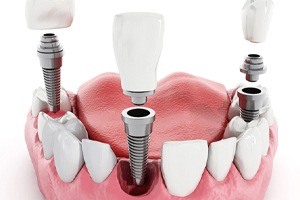
There are different factors that come into play when determining how much your implant procedure will cost. Some include:
- The number of implants you’ll need (single tooth, multiple teeth, implant-retained dental implants)
- How the implant is placed (the type of procedure)
- How the implant is made (different manufacturers)
During your initial consultation with our doctors, they will discuss all these factors, as well as if you need any additional dental surgery completed prior to dental implants. This will give you a better idea as to how much your implant procedure will cost.
Are Dental Implants Worth the Investment?

Without a doubt, the answer is yes! Dental implants are the superior method of tooth replacement restorations. Your dentist in Springfield can offer a wide variety of treatments; however, none of them will offer the stability, longevity, and natural look and feel like dental implants. While they may be a costly endeavor, the results speak for themselves. Not only will you have a fully restored smile that can last a lifetime, but you’ll have increased confidence in your ability to speak and eat!
Does My Dental Insurance Cover Dental Implants?
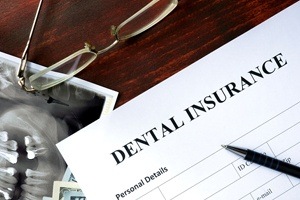
Since each dental insurance company is different, you’ll need to check your individual policy to see if your insurance will cover your dental implants. If you’re unsure how to navigate this process, talk to one of our office team members. They will be happy to discuss your coverage with you and determine how you can get the most out of your benefits.
It’s also important to know that our office does offer flexible financing options through CareCredit, Lending Club and Green Sky Financial. You may be eligible to qualify for low-to-no interest payment plans that can break up the cost of your care, so it works best for you.
A Long-Lasting Investment
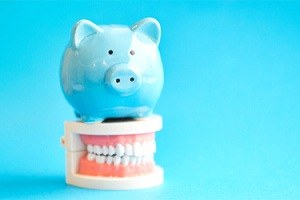
No two budgets are the same, and no two patients are the same. This means, if you only need a few dental implants in Springfield, your cost will be significantly less than someone needing a full row. At Advanced Dental Care of Springfield, we understand dental implants are a costly option; however, we can assure you that the investment you’re making now is one you’ll be happy with for years to come.
Dental Implant Technology
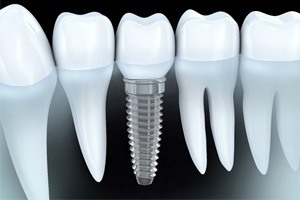
While dental implants in Springfield, IL have a high success rate, many patients may have a smaller margin for error than others due to the construction of their mouths. To be successful, the procedure needs to be as precise as possible. Advanced Dental Care of Springfield makes sure that our dentists always have the best tools for the job; with state-of-the-art techniques like CBCT scanning and computer-guided dental placement, repairing your smile has never been smoother!
CBCT Scanning
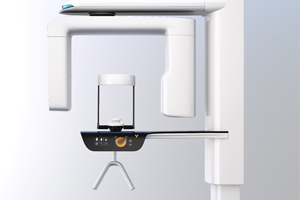
A CBCT (cone beam computed tomography) scanner is a special X-ray machine that can create a three-dimensional image of the inside of your mouth. The machine will fully rotate around your head, taking somewhere between 150 and 200 pictures at various angles; at the end, special software combines these images into a digital 3D model.
Unlike traditional X-rays, CBCT images can show the dentist various dental structures, soft tissues, nerve paths and craniofacial bones in great detail; this gives your dentist in Springfield a more comprehensive understanding of your jaw and other anatomical structure. The technology can be used to improve all kinds of dental surgeries.
Thanks to the models produced by CBCT scans, patients with missing teeth can enjoy various benefits of an enhanced dental implant procedure, such as:
- Better Precision: An improved, more accurate understanding of your mouth will make it easier for the dentist to anticipate potential obstacles during a procedure and plan accordingly. Furthermore, CBCT images tend to be of higher quality.
- Higher Success Rate: Enhanced precision means that the entire procedure is more likely to succeed than if we merely relied on traditional X-rays.
- Safe and Comfortable: The scans are painless, noninvasive and leave no radiation remains in your body afterwards.
Guided Dental Implant Surgery
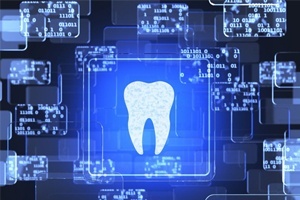
CBCT scans can also be used to directly guide the implant surgery itself. A model is created that lets us “perform” a virtual surgery. This is invaluable in situations that require a particularly careful touch. For example, if all of the teeth in the upper or lower jaw are missing, there won’t be any landmarks to indicate where an implant is supposed to go. A computer-generated guide will make it much easier to visualize the correct position for the implant.
Because a guided surgery is much more precise, patients will often experience less pain, swelling, bruising and discomfort afterwards. Smaller incisions are usually required as well, which means your gums will heal faster.
Advanced Dental Implant Procedures

As great as dental implants can be for replacing missing teeth, not all patients are candidates for the procedure. Sometimes the jawbone has already lost enough density that it’ll be unable to support the posts, causing integration to fail. Fortunately, in many cases Advanced Dental Care of Springfield can perform a procedure such as a bone graft or a sinus lift to add the extra bone necessary for a successful process. If you’re considering implants to fill in the gaps of your smile, contact us today; during a consultation, we’ll examine your mouth and let you know what steps need to be taken first.
Bone Grafting
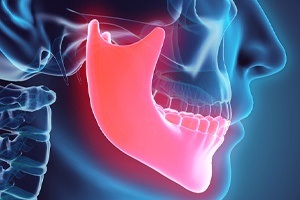
When teeth are lost, the unused portion of the jawbone will begin to deteriorate or “resorb.” (This can also be the result of gum disease). Bone grafting is a technique that can help rebuild the damaged structure. This is done by adding grafting material – usually processed bone minerals – in strategic areas of the jaw.
There are several different kinds of bone grafts that each use a different type of material:
- Autografts use your own bones. Usually the necessary material is taken from the hip or the back of your jaw.
- Allografts involve bone tissue that came from a separate human donor.
- Xenografts use bone taken from an animal. In most cases, it will be a cow.
- Alloplasts employ synthetic materials that contain calcium, phosphorous and hydroxylapatite.
The different types of grafts have various advantages and disadvantages; we’ll make our recommendation based on the state of your oral health.
After the surgery, you may experience some minor soreness that can be controlled with anti-inflammatory medications, pain relievers or ice therapy. The discomfort shouldn’t last longer than a couple of days. Once you’ve recovered, it’ll take several months for your body to replace graft with its own bone; when that’s done, your jaw will be ready to receive a dental implant in Springfield, bringing you one step closer to enjoying your new teeth.
Sinus Lifts
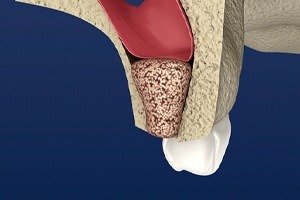
Like with bone grafting, a sinus lift uses transplanted materials (your own bone, a donor’s bone, etc.) to encourage the production of new bone tissue. However, a sinus lift is specifically for the upper jaw. It’s used when there’s not enough bone present or if the sinuses don’t leave enough room for implants to be placed.
During the procedure, an incision will be made in the gum tissue near the back for your mouth. This will give your dentist in Springfield access to the membrane separating the sinus from the jaw. The membrane will be gently pushed up, and the grafting material will fill the space left behind. The site will be closed, and after a few months, you’ll be ready to get your implants!
Maintaining & Caring for Your Dental Implants

Even if dental implants are considered the peak of tooth replacement options, you’ll need to practice great care to preserve them for as long as possible. The good news is that they’ll function very much like natural pearly whites, so you won’t have to use special techniques or tools to maintain them. Here are several easy ways to care for your new teeth to help maximize their lifespan.
Make Oral Hygiene a Priority

Like with your normal teeth, you’ll want to practice daily oral hygiene to keep them safe and healthy, which includes brushing, flossing, and rinsing with mouthwash. While your implants won’t get cavities, it doesn’t mean the surrounding teeth and gum tissues will be immune to decay or infection. The last thing you want is for the connective tissues and jawbone supporting your new teeth to become damaged and risk failure.
Eat a Healthy Diet

Now that you’ve replaced your missing teeth with strong and lifelike dental implants, you’ll be able to expand your diet to include more solid foods. For this reason, it’s best to stick to more nutritious options, such as lean meats, veggies, and fruits, which can promote stronger and healthier gums and bone tissue. Be sure to avoid sugary and starchy foods that can end up inviting bacteria to settle around your mouth and implants.
Break Bad Habits

Smoking is already harmful to your oral and overall health, as it can increase the risk of oral cancer as well as other complications. On top of avoiding tobacco products, you’ll want to also refrain from poor oral habits like chewing on ice or using your teeth as tools. One wrong bite can damage your teeth as well as your dental implants.
Protect Your Dental Implants

If you tend to participate in physical sports, you should invest in athletic mouthguards that can cushion and protect your new pearly whites. You might also consider getting custom nightguards for Bruxism if you struggle with clenching and grinding your teeth during sleep. The more protection you have for your dental implants and restoration(s), the longer your renewed smile can last.
Schedule Regular Dental Checkups

While cleaning your teeth every day is important, you should also visit your dentist for routine checkups and cleanings. These appointments are essential for both monitoring your smile and dental implants as well as addressing underlying issues that could risk failure in the future. Plus, our team will also provide professional teeth cleaning so that you can show off a brighter smile every six months.
Dental Implant Post-Op Instructions

The recovery from dental implant surgery can be a long ordeal full of pitfalls. However, with this handy guide, you won’t have to worry about falling into them! Many patients have gone through the process already and are enjoying their new smiles, so you can too. Read on below to learn how to take care of your new dental implants, habits to look out for, and the normal symptoms you may experience as a part of the recovery process. If you need more guidance, don’t hesitate to reach out to us.
What to Do Directly After Dental Implant Surgery

The most important thing you’ll need to manage directly after your surgery is the blood clot that forms around your implant sites. These clots are vital to healing and keeping your implants healthy. Here’s how to keep them intact:
- Avoid spitting, even during oral hygiene. Instead, let the liquid fall from your mouth to the sink or use tissues to absorb it.
- Don’t drink anything through a straw. Creating suction in your mouth is the easiest way to accidentally dislodge your clots.
- Hold off on smoking for at least 24 hours to let the clots form properly.
- Avoid touching the area with your tongue, fingers, or toothbrush.
Common Side-Effects When Recovering from Dental Implant Placement

There will be some mild side effects after your procedure, and they’re nothing to worry about. Here’s what you can normally expect:
- General discomfort will probably be the first thing you notice. Over-the-counter pain medications can help you manage.
- Swelling around the implant area may also occur over the first 72 hours. A cold compress can help reduce the issue.
- Spotty bleeding may also happen sometimes. Use gauze or a clean cloth and apply gentle pressure until it stops.
If any of these symptoms get worse or last more than a week, call us to schedule a follow-up appointment.
Your Diet After Dental Implant Surgery

For the first few days after your surgery, we highly recommend a diet of soft and nutritious foods. These will prevent damage to the implant site and promote better healing. Here are some of the best foods that can help you achieve a happy mouth and fill you up:
- Mashed potatoes
- Warm (not hot) soup
- Yogurt
- Eggs
- Soft pasta
- Steamed vegetables
- Fruit smoothies
- Oatmeal
As you progress, you can start to introduce other foods back into your diet but try to remain cautious and chew around your implant instead of on it.
Post-Op Health & Oral Hygiene

Oral hygiene is still crucial when recovering from dental implant surgery. Here are some guidelines to follow for a smoother experience:
- Brush your teeth as normal the day after your implant surgery but avoid the implant site entirely.
- Gently rinse your mouth with warm salty water two to three times per day, especially after meals.
- Don’t use mouthwash that contains alcohol. Try to find a good natural brand you enjoy.
What to Do After Your New Teeth Are Attached

Once you’ve had your new permanent crowns attached, the hard work is over, and your patience has paid off! You may experience some minor sensitivity around the gumline near your new restoration, but there shouldn’t be any swelling or bleeding. From here on, you can enjoy the full benefits of your dental implants!
Dental Implant Failure & Salvage

Although dental implants have an outstanding track record and success rate of over 95%, there is still a possibility for them to fail – and if this happens, your entire oral wellness is at risk! If your newly rebuilt smile begins to feel uncomfortable, or you’re concerned about the well-being of your dental implants, you shouldn’t hesitate to call our office right away. We might be able to restore your smile with the help of dental implant salvage treatment!
Dental Implant FAQs
I Smoke. Can I Still Get Dental Implants?
Yes, but we recommend that you stop. The process can become a lot more complicated if you smoke. Tobacco slows down the body’s natural healing ability, especially after surgical procedures in the mouth. If you already smoke or chew tobacco, your dentist in Springfield suggests that you use getting dental implants as a reason to quit.
Does Getting Dental Implants Hurt?
Before getting dental implants, our team at Advanced Dental Care of Springfield will be sure to discuss sedation options with you. We will always be sure to apply plenty of local anesthetic to numb the area receiving the implant. In addition, we might use other types of sedation, like nitrous oxide or oral conscious, if you need extra help relaxing in the dental chair.
As with any surgical procedure, there may be some soreness afterwards. We’ll be sure to prescribe pain medications to help you deal with that discomfort. You may also want to take over-the-counter painkillers as needed.
I Have Diabetes. Can I Still Get Dental Implants?
Yes, but you will have a slightly higher risk of implant failure, especially if you have type 2 diabetes. The condition can make your body slower to heal from surgical procedures, which carries a higher risk of infection in the gums that can make your body reject the implant. Before you get an implant, you should talk to your endocrinologist or primary care doctor about the possibility of getting dental implants. They can get you on a plan of managing your blood sugar levels to lower your risk of implant failure.
How Do I Take Care of a Dental Implant?
The great thing about dental implants is that caring for them is pretty similar to maintaining good care of your natural teeth. Remember to brush the implant restoration every day, and floss around the post as well. Additionally, be sure to visit us here at Advanced Dental Care of Springfield at least twice a year for a checkup and cleaning to make sure your implant is still in good shape. Your implant should last at least thirty years, but if you take excellent care of it, it can even last for the rest of your life!
Am I Too Old for Dental Implants?
No! There actually is no upper age limit for dental implants. There is, however, a lower age limit. Since adolescents’ jawbones are still developing, placing a dental implant could interfere with that process. You can never be too old for dental implants, though. As you age, the healing process gradually takes longer and longer. However, adult patients of any age have gotten dental implants and been more than satisfied with them.
How Long Do Dental Implants Last?
If you follow the care tips outlined above, your dental implants could last for as long as 30 years or more before needing a replacement. That makes dental implants the most durable restoration option in modern dentistry! To put this into perspective, the average lifespan of a set of dentures is roughly 7 to 10 years, while a traditional bridge or crown will last you about 15.
Can I Take Dental Implants Out?
No, and we don’t recommend trying! Since dental implants are attached to your jawbone, you will not be able to remove them yourself. At best, you might cause your gums to ache from the effort – at worst, you could loosen your implant. Give us a call if you think your dental implants need to be taken out for any reason.
The one exception to this rule would be if you have a special type of removable implant denture. Although, even in this case, it’s not the implant post that is removeable, but the denture portion of the prosthetic. If you’re interested in a removable restoration, let us know!
Will People Be Able to Tell That I Have Dental Implants?
That’s one of the best things about dental implants – no one will be able to tell the difference between an implant and a natural tooth! This is achieved through modern fabrication methods, an oral impression, and skilled artistry. We’ll customize your dental implants based on the unique shape of your mouth and the precise shade of any natural teeth. In other words, you can expect to complete your treatment with a full, consistent smile.
How Soon After a Tooth Extraction Can I Get Dental Implants?
There are rare instances where a dental implant can be placed immediately after a tooth extraction. However, note that this requires a healthy, strong jawbone. More often than not, we’ll recommend waiting for three to six months. This timeline helps ensure that your mouth has had enough time to heal from the extraction while also giving us the opportunity to make the replacement before your jawbone shrinks too much from lack of stimulation.
Basically, the answer depends on your case. We’ll be sure to let you know about your expected timeline during your consultation!
How Long Have Dental Implants Been Around?
While the oldest evidence of an attempt at dental implants dates way back to 600, the restoration as we know it today has been used by dentists in the US since 1982. Interestingly, the orthopedic surgeon who developed the technique placed the first successful dental implant as early as 1965. It just took a “few” years for the FDA to approve them!

